Why more Americans are stocking up in uncertain times and how you can prep, too
Published on June 16, 2025
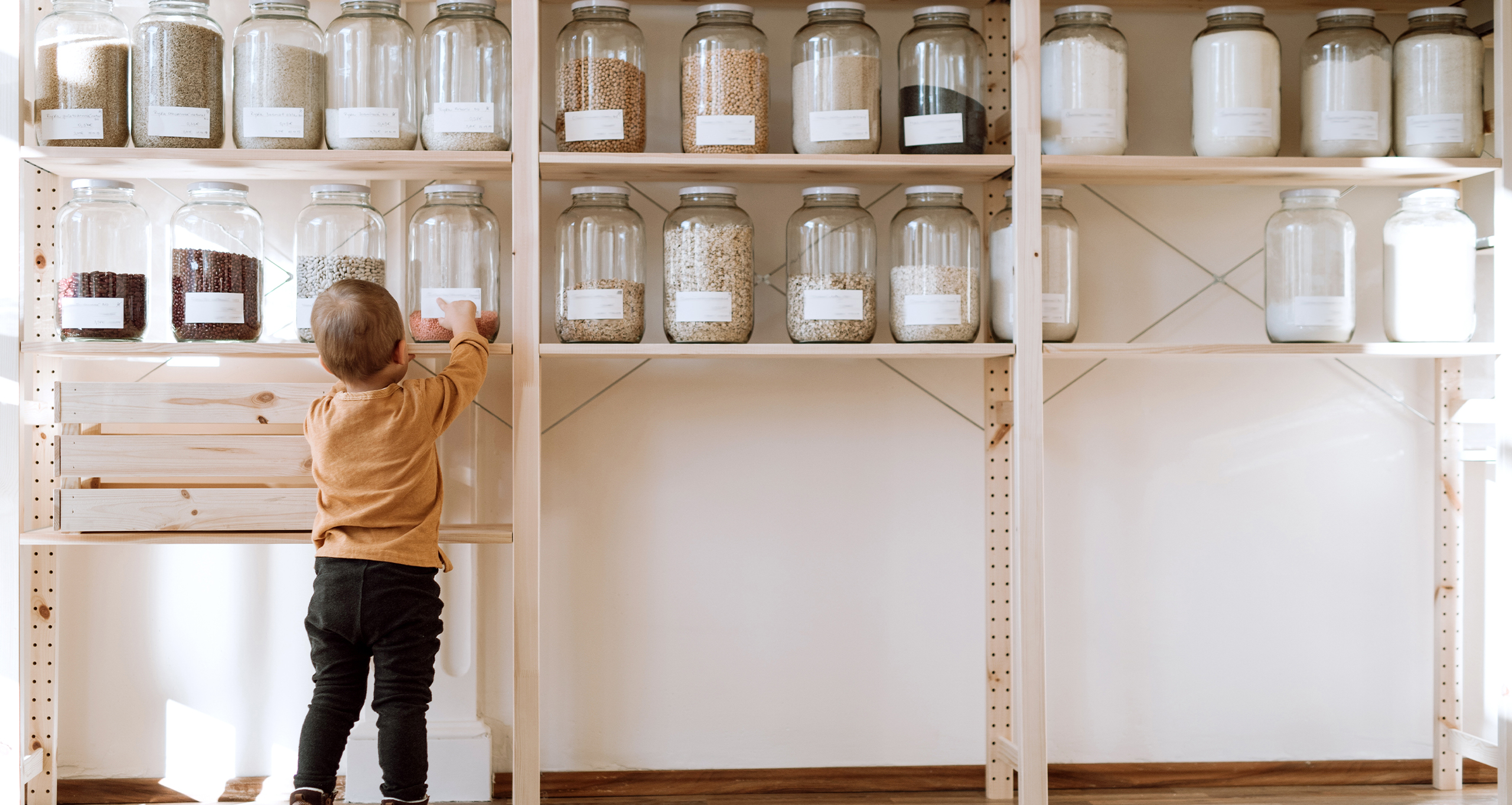
Over the past few years, more Americans have embraced the idea of prepping—not in the extreme, doomsday sense, but as a practical way to ensure their families’ safety, security, and self-sufficiency in an unpredictable world.
If you’ve noticed rising grocery prices, supply chain disruptions, or stories of extreme weather events, you may have wondered: What would I do if something unexpected happened?
That’s exactly what this article will help answer. Prepping doesn’t have to be expensive, overwhelming, or driven by fear. It’s simply about being responsible and making sure your family is ready for whatever may come—whether it’s a natural disaster, a job loss, or an economic downturn.
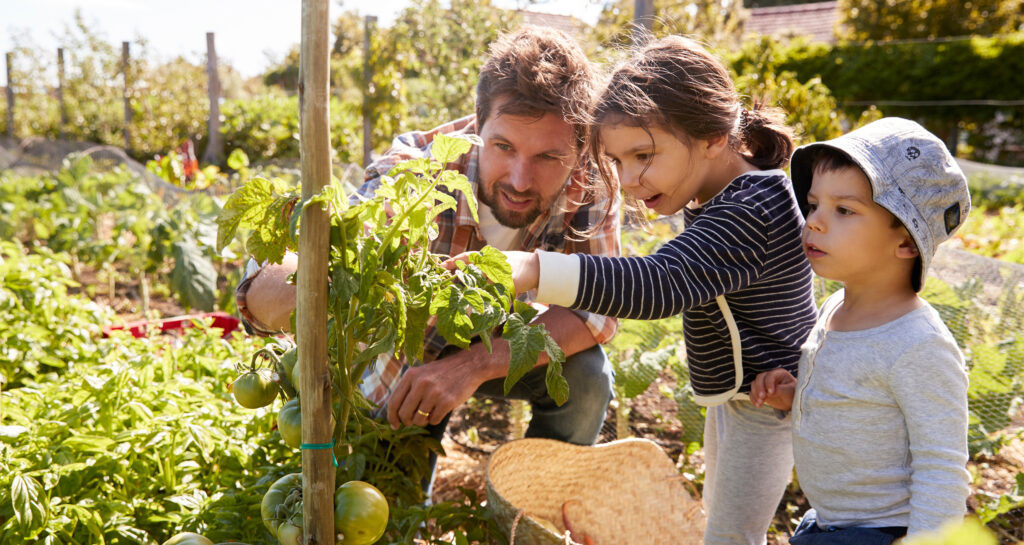
The basics: Why preparedness matters in 2025
Being prepared isn’t about assuming the worst—it’s about protecting what matters most. And in 2025, more people are realizing that uncertainty is a fact of life.
Here are some of the biggest reasons why preparedness is no longer a fringe idea:
- economic uncertainty – Rising inflation, layoffs, and unpredictable markets have made financial stability harder to maintain.
- natural disasters – Wildfires, hurricanes, floods, and winter storms are increasing in frequency and severity.
- political and social instability – Global conflicts, cyberattacks, and protests have disrupted supply chains and daily life.
- personal emergencies – Unexpected events like job loss, medical emergencies, or power outages can impact any family.
Prepping isn’t about assuming catastrophe—it’s about ensuring that if something unexpected happens, you’re not caught off guard.
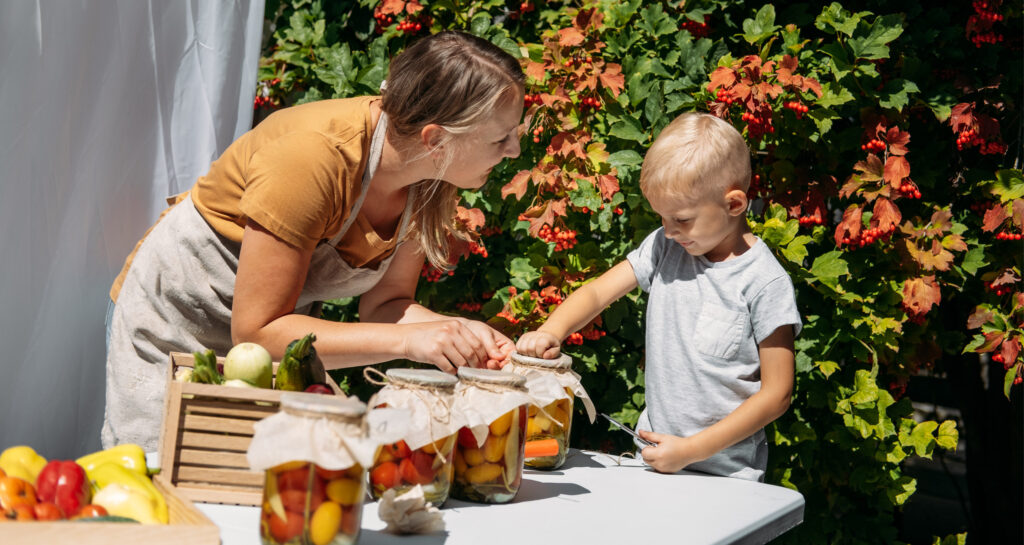
Common misunderstandings about prepping
Many people dismiss prepping because of common misconceptions. Here are three of the biggest myths:
- “prepping is just for conspiracy theorists.” Not at all—preparing for a hurricane or economic downturn is just as logical as having car insurance.
- “it requires extreme measures.” You don’t need to build a bunker. Even small steps—like keeping extra food and water on hand—make a difference.
- “it’s too expensive.” Prepping doesn’t mean buying everything at once. Smart, budget-friendly planning makes it affordable.
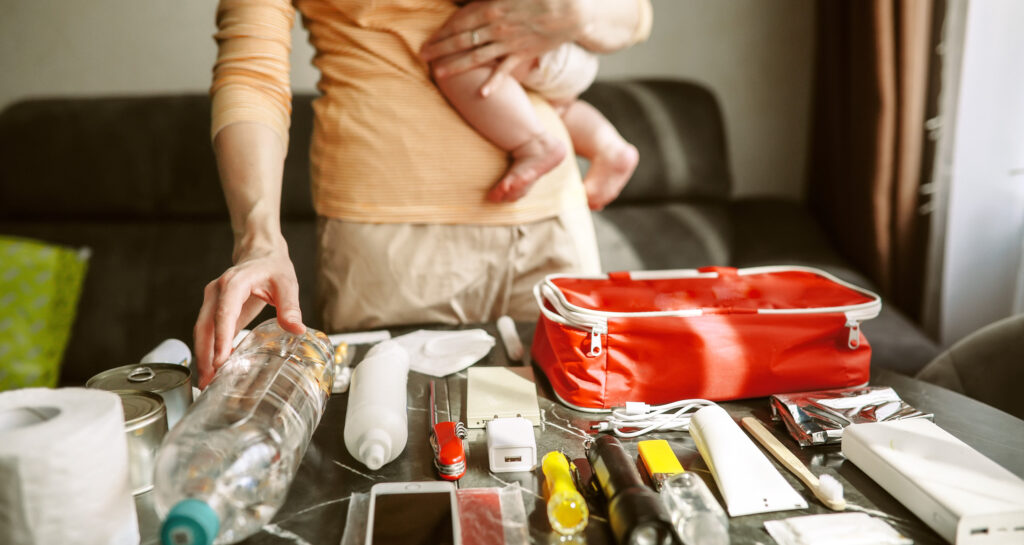
How to start prepping without stress
The key to prepping is starting small and focusing on essentials. Here’s how to ease into it:
Step 1: Build a 72-hour emergency kit
Why 72 hours? The Federal Emergency Management Agency (FEMA) and the Red Cross recommend it because, in most disasters, it takes up to three days for emergency services to restore basic infrastructure.
Having three days’ worth of food, water, and medical supplies is critical. Here’s what to include:
- Water: One gallon per person per day
- Non-perishable food: Canned goods, protein bars, nuts
- First aid kit: Bandages, antiseptics, any prescription meds
- Emergency radio: Battery-powered or hand-crank for updates
- Flashlight & extra batteries
- Multi-tool or knife
Important documents: IDs, insurance papers in a waterproof case
Step 2: Prepare for financial uncertainty
A job loss or economic downturn can be as disruptive as a natural disaster. Protect your family by:
- Building a small emergency savings fund
- Keeping some cash on hand in case of power outages
- Stocking up on household essentials to avoid panic-buying later
Step 3: Strengthen community ties
Preparedness isn’t just about what you own—it’s about who you can rely on. Some of the best security comes from faith communities and strong neighborhood connections.
Ways to build community resilience:
- Get involved in church groups or neighborhood emergency teams
- Have an emergency contact plan with friends and family
- Offer to help elderly or vulnerable neighbors with their preparedness
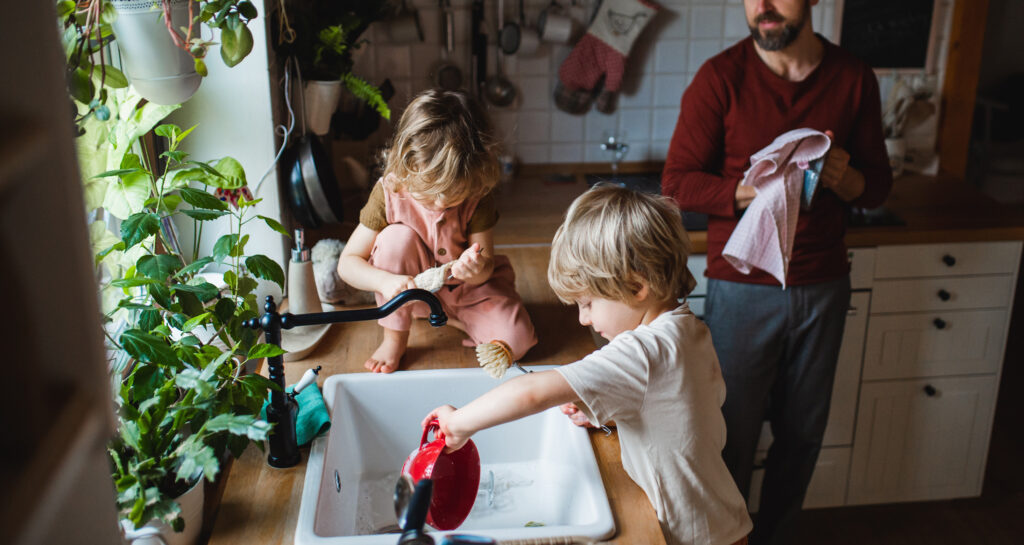
Exciting results: How preparedness will transform your life
Prepping isn’t just about preparing for the worst—it’s about improving your life now.
- peace of mind – You’ll feel more in control knowing your family is ready.
- financial stability – Stocking up on essentials can save money over time.
- stronger family & community bonds – Working together on preparedness builds teamwork and trust.
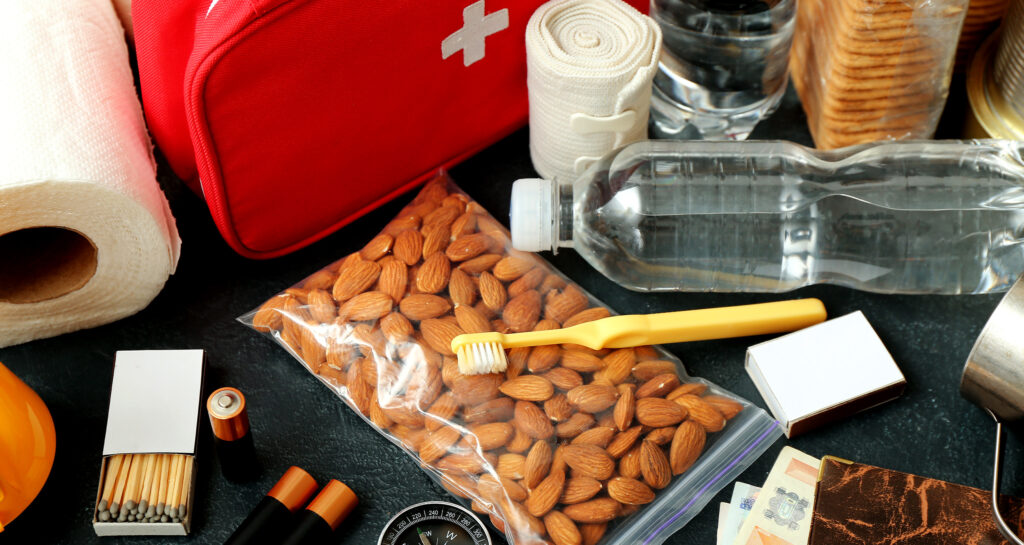
Top 10 must-have items for a family emergency kit
An emergency kit is your first line of defense in any crisis. These ten essentials will help your family stay safe, comfortable, and informed:
- Water – One gallon per person per day (minimum 3 days).
- Non-perishable food – Canned goods, protein bars, and dry snacks.
- First aid kit – Bandages, antiseptic, pain relievers, and prescription meds.
- Emergency radio – Battery-powered or hand-crank NOAA weather radio.
- Flashlights & extra batteries – Power outage essentials.
- Multi-tool or knife – For repairs, food prep, and self-defense if needed.
- Hygiene items – Wet wipes, hand sanitizer, and basic toiletries.
- Important documents – Copies of IDs and insurance policies in a waterproof container.
- Cash & small bills – ATMs may be down, so having cash is crucial.
- Extra clothing & blankets – Staying warm and dry is critical in certain emergencies.
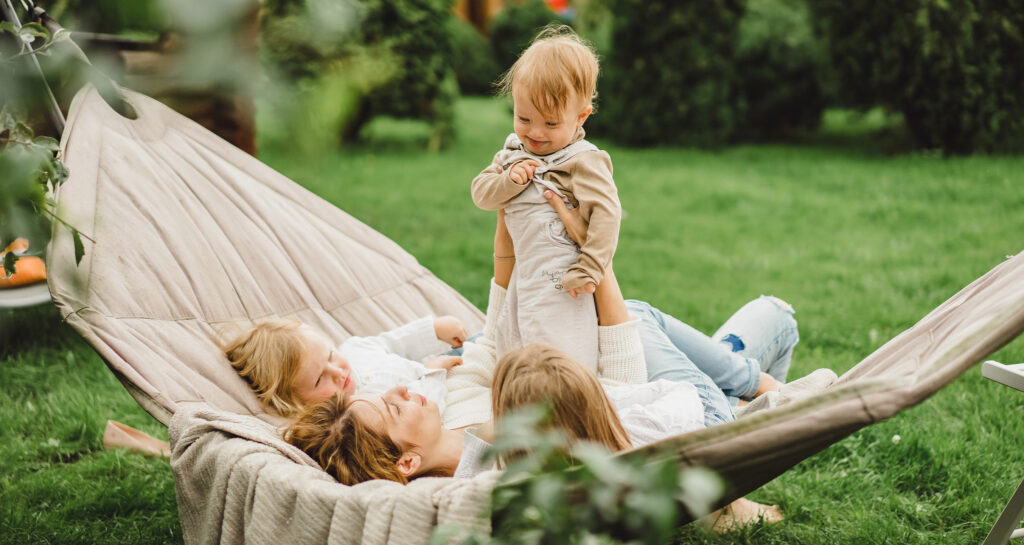
Key takeaways
- Start small—focus on food, water, and finances first.
- Don’t prepare out of fear; do it out of responsibility and love.
- Community and faith are as important as supplies.
Recommended next steps:
- Create a basic 72-hour emergency kit.
- Set up a small emergency savings fund.
- Start a conversation with your family about preparedness.
Prepping doesn’t have to be extreme or expensive. It’s simply about being wise and responsible—protecting your family while trusting in God’s plan.
Whether it’s a short-term emergency or a longer-term challenge, having a plan means having peace of mind.
Are you ready to take the first step? Start today with just one simple action—because your family’s security is worth it.




Thank you for addressing this…I’ve been setting aside in a large cupboard extra food and water and supplies such as a miniature stove to cook on and for heat if needed. Extra batteries and medical supplies i.e. bandaids and antibiotic cream. I’ve also purchased a radio that has a crank on it so it doesn’t need batteries to be able to keep abreast of current happenings. It’s better to have extra things and not need them than need them and not have them.
One thing important here in Florida is a full tank of gas in case evacuation is ordered. Gas stations quickly run out of fuel or have lines blocks long when hurricanes are closing in..
If you’re looking for some how-to prepping videos, from the perspective of a Catholic husband and father, check out my YouTube channel: https://www.youtube.com/@BarricadeGuard
I have videos on how to prepare food, water, and medical supplies . . . as well as how to handle security and other Catholic family topics. I’d be honored if you checked it out and subscribed, and hopefully it will benefit you as well! Thank you.
It was a worthwhile read. Sometimes I read articles thinking I will gain some knowledge and then find myself saying – that was a waste of time. Sometimes I hear something in the news about crops and I start to worry. This article calmed those thoughts. Thankyou
Prepping is not conspiracy fear, it’s biblical! Recall the virgins who ran out of oil…
Water is good, necessary. Distilled water is useful even in non-emergency situations and is cheaper than water bottled in smaller plastic bottles. Keeping tap water in your own bottles is probably not a good idea, unless you have purification kits – it can go stale.
I purchased large water containers from Amazon along with some drops to put in the water so it will remain fresh for several years. I’ve stored 5 of these in a dark closet.
That’s a good idea! Any chance you could share the containers and drops you purchased?
Is there any way to repost your articles?
Can I suggest including advice on how to manage the food and water that you’ve prepped? It’s “easy” to get the food but then you need to use what will expire and cycle new supplies in its place so that should that emergency come 3 years from now you don’t find that your supplies from 5 years prior have expired or gone bad. I say this from the experience of having a loved one who has prepped and in reviewing what is stored 5 years later much has expired and it feels like a waste.
I’ve read about buying new canned goods and using the older now. Replacing any that may getting near expiration. Just put the new in the back and use from the front. Just be sure to remember as your using the older canned goods to replace them.
I always put the year of expiration on a separate shelves, 25, 26, 27, etc so when I buy something I just put it on the dated shelf. That’s just my method